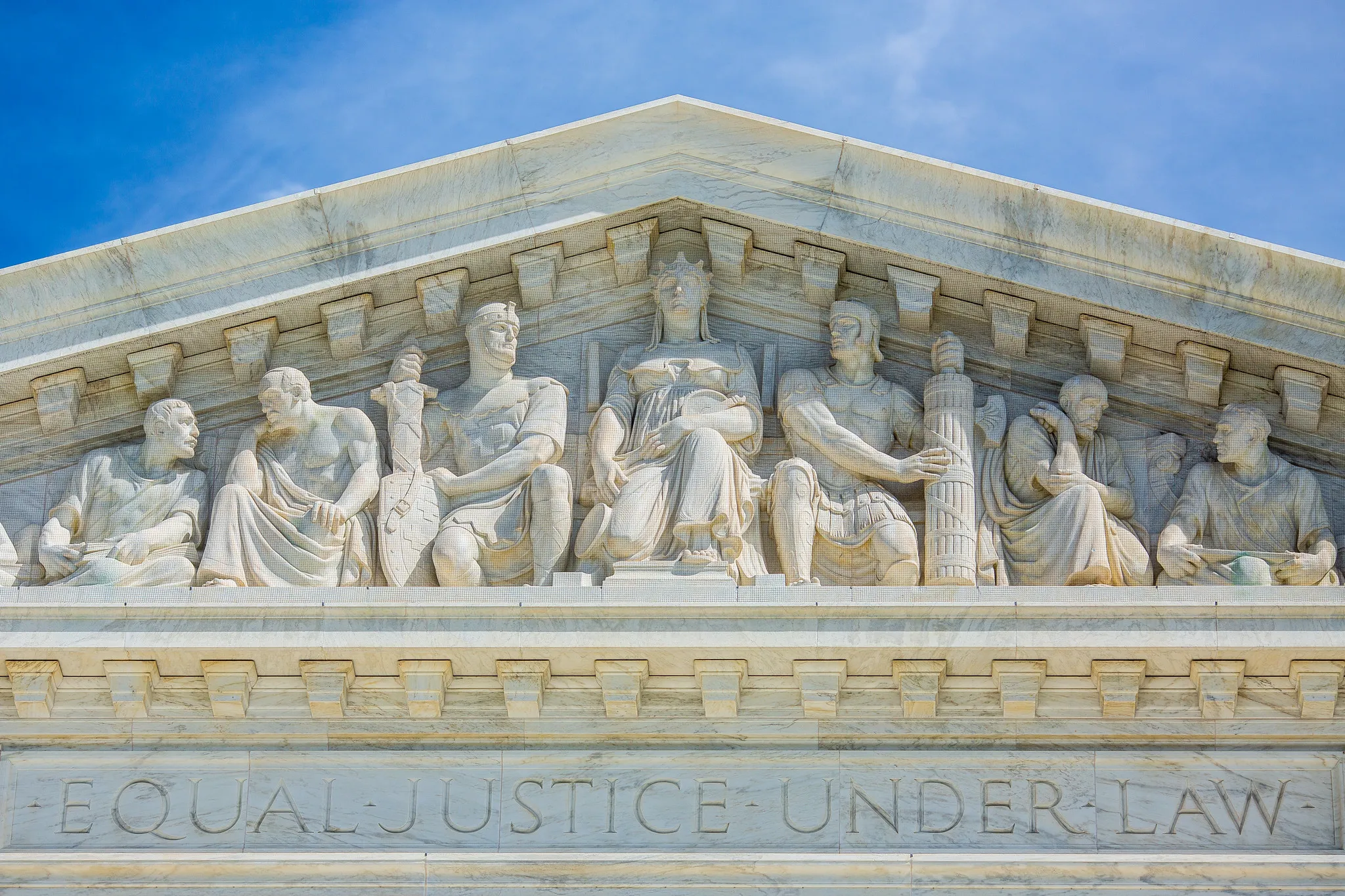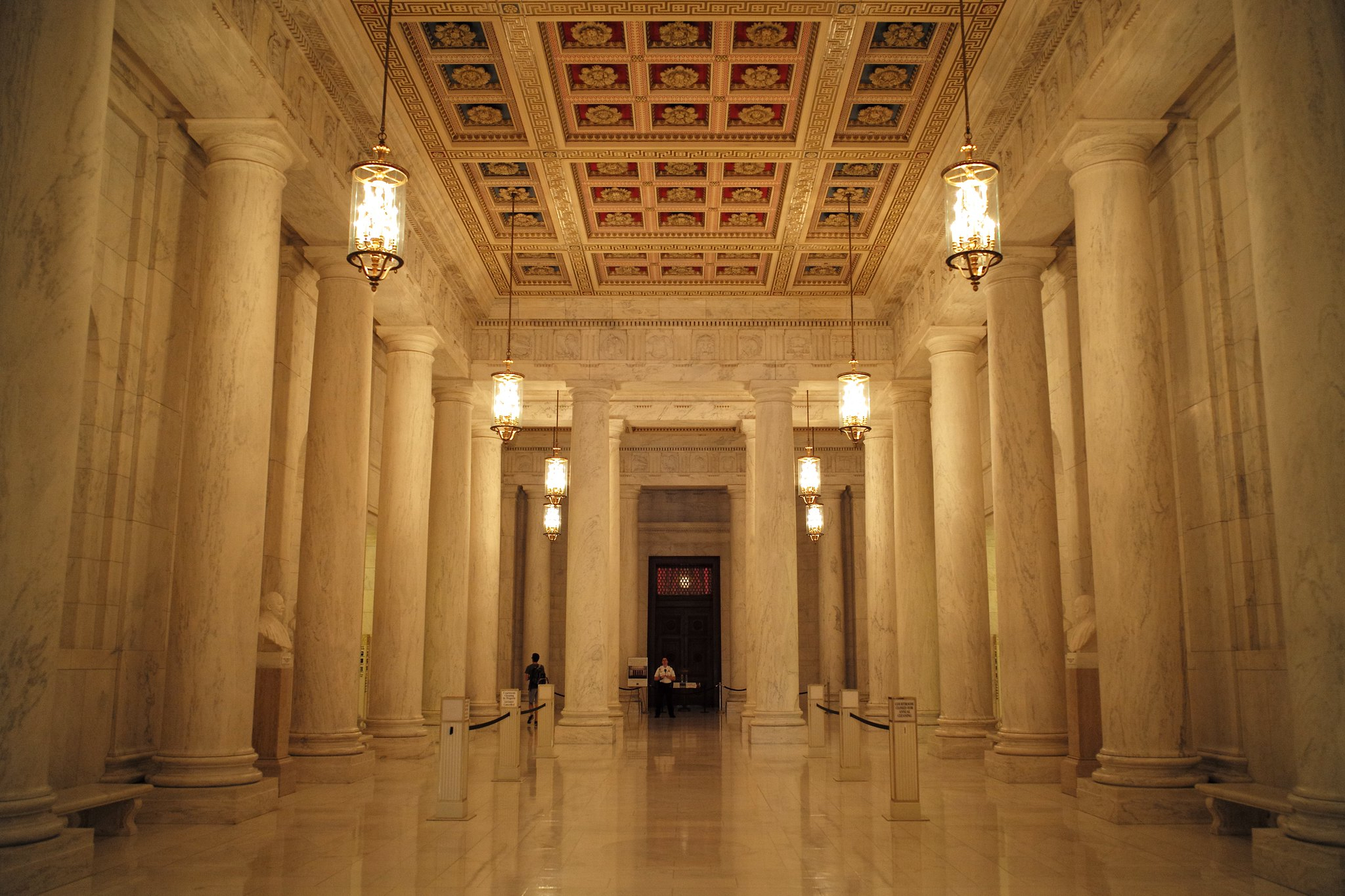Washington residents challenge state’s effort to tax long-term capital gains
Petitions of the week
on Oct 7, 2023
at 9:21 am
The Petitions of the Week column highlights a selection of cert petitions recently filed in the Supreme Court. A list of all petitions we’re watching is available here.
The Constitution constrains states from excessively burdening out-of-state commerce – a doctrine known as the dormant commerce clause, because it is implicit in the grant of power to Congress to regulate interstate commerce. Five years ago, a divided Supreme Court held in South Dakota v. Wayfair that, under the doctrine, South Dakota could require large, out-of-state online retailers to collect taxes on the goods they sell to in-state residents. This week, we highlight petitions that ask the court to consider, among other things, whether Washington state can tax sales of some out-of-state assets consistent with the dormant commerce clause.
Like South Dakota, Washington is one of a handful of states with no income tax. Its state constitution caps taxes on property, which it defines to include income, at 1%. Accordingly, Washington must rely on other forms of taxes to generate revenue. Wayfair involved South Dakota’s effort to do so by taxing e-commerce sales.
In 2021, Washington took a different step. Barred from fashioning a more progressive tax system by taxing the income from long-term capital gains of wealthy Washingtonians at a higher rate, the state’s Democratic-controlled legislature instead passed a 7% excise tax – that is, a tax on the sale or exchange by state residents of that long-term capital itself. With a few exceptions, including real estate, retirement accounts, and charitable donations, this tax applies to the sale of assets, whether the sale occurs in the state or outside it, in excess of $250,000 per year.
Chris Quinn is a resident of Washington. When the new tax went into effect in January 2022, he and a group of other Washingtonians went to court to challenge it. They argued that the measure violates the Washington constitution because it functions as an income tax rather than an excise tax. But if it is an excise tax, they countered, then it violates the dormant commerce clause.
A state trial court in Washington agreed that the tax violated the state constitution and invalidated the measure.
On appeal, the Washington Supreme Court reversed and upheld the measure. The state supreme court rejected the challengers’ state constitutional claims. And it held that the tax did not violate the dormant commerce clause because it has a “significant nexus” to the in-state activity of residents who decide to sell their capital assets, and it exempts the sale of a resident’s out-of-state assets if that sale would also be taxed by another state.
In Quinn v. Washington, the residents ask the justices to grant review and reverse the Washington Supreme Court’s commerce clause ruling. The state, they argue, cannot have it both ways. “If Washington prefers to impose excises instead of income taxes, then it must live with the consequences of that choice,” they write. “And one of those consequences is that it may not impose excise taxes on transactions that occur entirely outside its borders.”
A list of this week’s featured petitions is below:
Quinn v. Washington
23-171
Issue: Whether the Constitution permits a state to tax out-of-state transactions involving only out-of-state property.
City of Grants Pass, Oregon v. Johnson
23-175
Issue: Whether the enforcement of generally applicable laws regulating camping on public property constitutes “cruel and unusual punishment” prohibited by the Eighth Amendment.
Alaska v. Alaska State Employees Association
23-179
Issue: Whether the First Amendment prohibits a state from taking money from employees’ paychecks to subsidize union speech when the state lacks sufficient evidence that the employees knowingly and voluntarily waived their First Amendment rights.
Eastern Pacific Shipping PTE, Limited v. Ganpat
23-183
Issue: Whether a federal court may properly issue an injunction requiring the termination of litigation in a foreign court based solely on a conclusion that the foreign litigation will cause hardship to the movant and will frustrate related United States litigation.
Nevada Department of Corrections v. Galanti
23-186
Issue: Whether there is an exception to the favorable-termination rule in Heck v. Humphrey for plaintiffs who are no longer in custody.
Williams v. Washington
23-191
Issue: Whether exhaustion of state administrative remedies is required to bring claims under 42 U.S.C. § 1983 in state court.






